---
title: Configuration
---
# Configuring Looker & LookML Connector
Now that you have created a DataHub-specific API key with the relevant access in [the prior step](setup.md), it's time to set up a connection via the DataHub UI.
## Configure Secrets
You must create two secrets to configure a connection with Looker or LookerML.
- `LOOKER_CLIENT_ID`
- `LOOKER_CLIENT_SECRET`
On your DataHub instance, navigate to the **Ingestion** tab in your screen's top right corner.
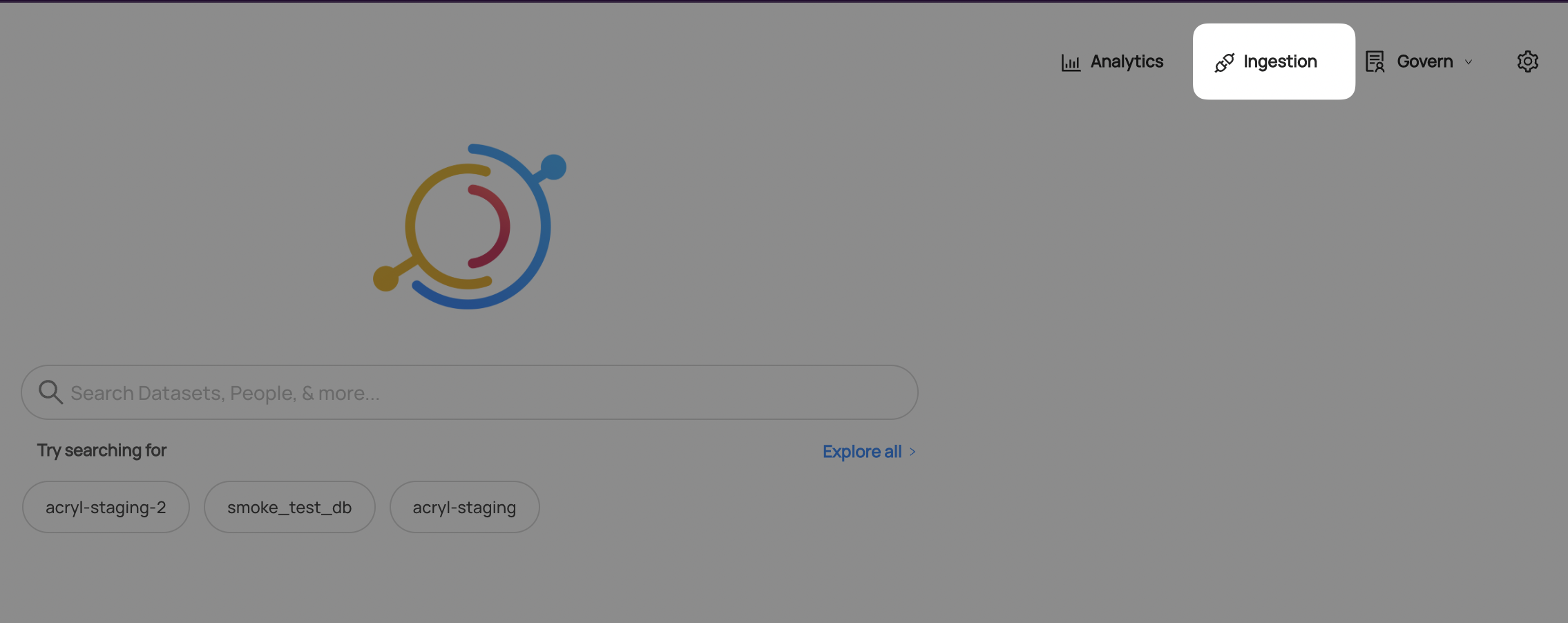
:::note
If you do not see the Ingestion tab, please get in touch with your DataHub admin to grant you the correct permissions.
:::
Navigate to the **Secrets** tab and click **Create new secret**.
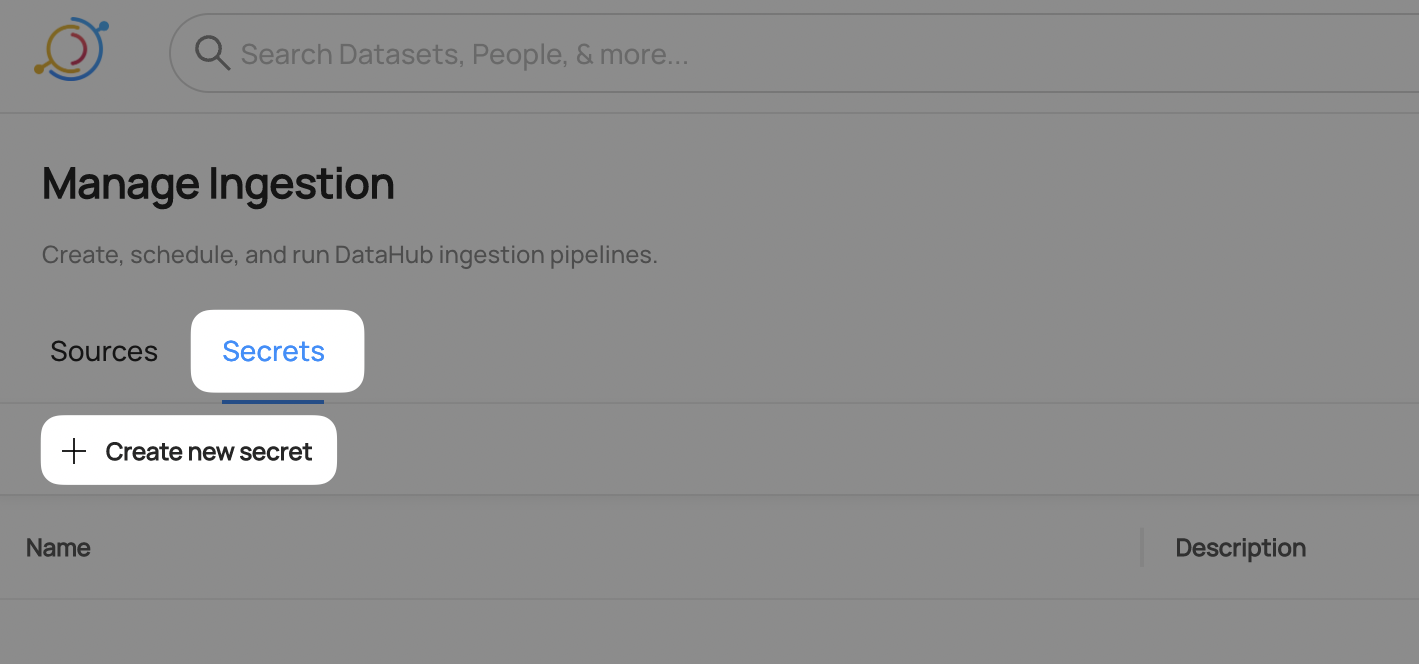
First, create a secret for the **Client Id**. The value should be the **Client Id** of the API key created in the [prior step](http://localhost:3000/docs/next/quick-ingestion-guides/looker/setup#create-an-api-key).
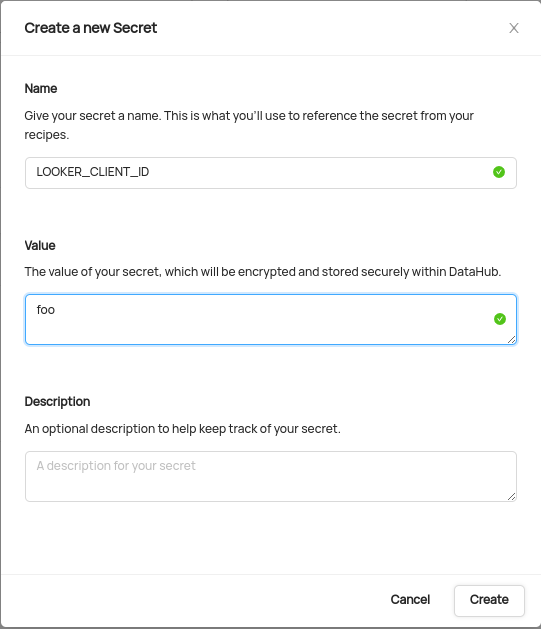
Then, create a secret for the **Client Secret**. The value should be the **Client Secret** of the API key created in the [prior step](http://localhost:3000/docs/next/quick-ingestion-guides/looker/setup#create-an-api-key).
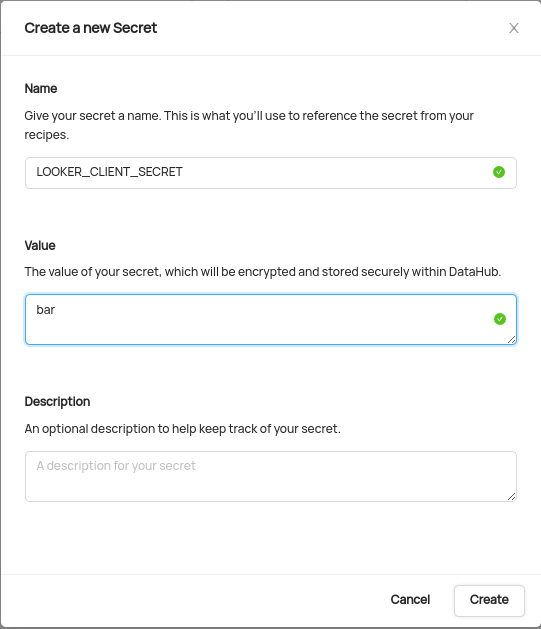
## Configure Looker Ingestion
### Configure Recipe
Navigate to the **Sources** tab and click **Create new source**.
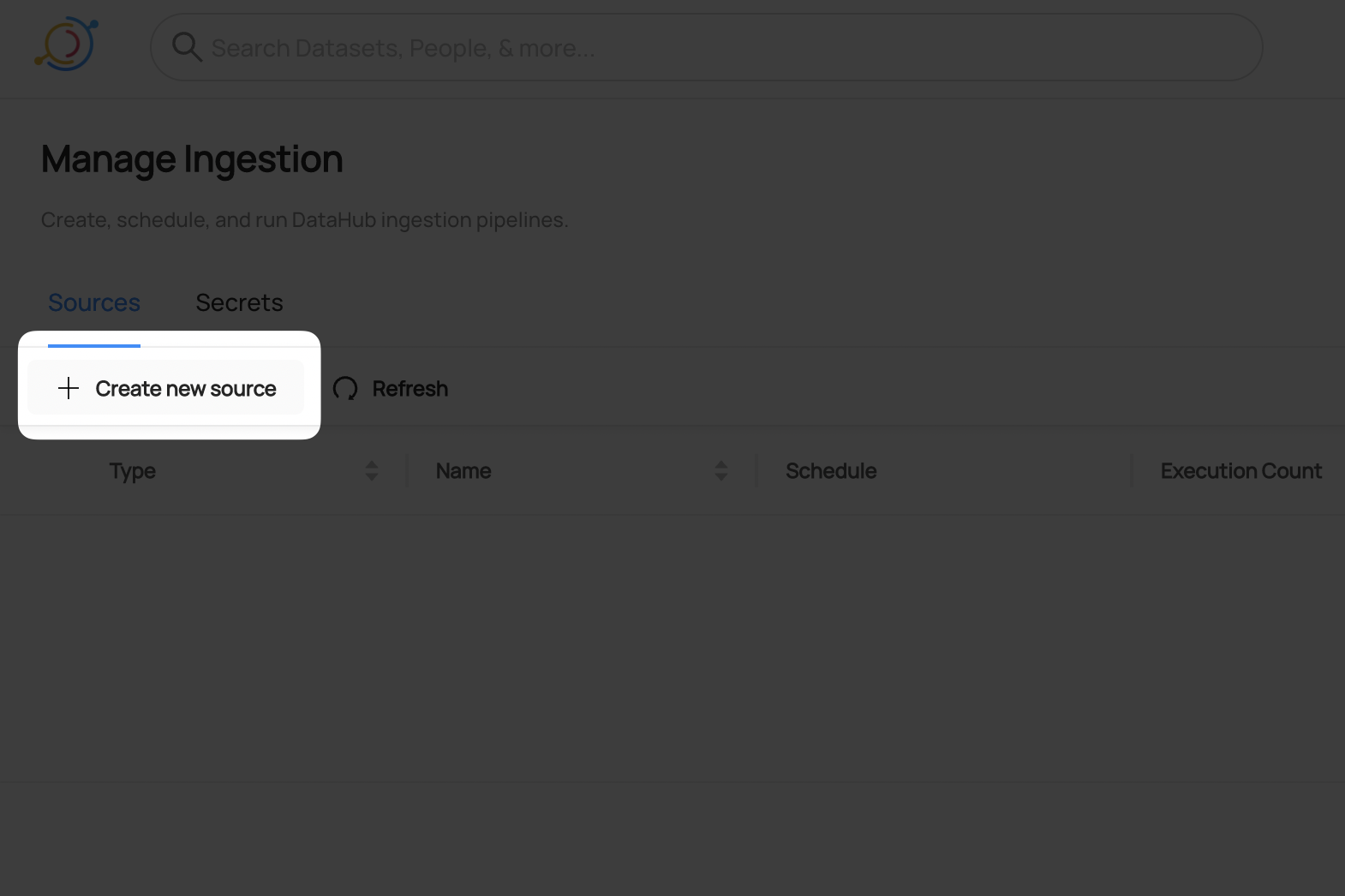
Choose `Looker`.
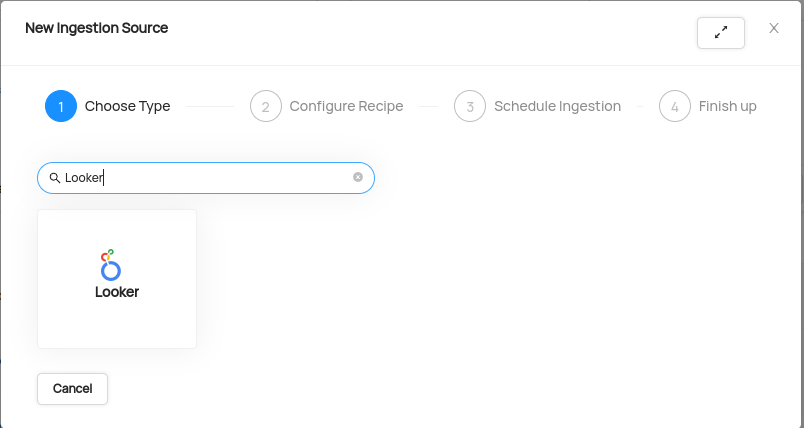
Enter the details into the Looker Recipe.
- **Base URL:** This is your looker instance URL. (i.e. `https://.cloud.looker.com`)
- **Client ID:** Use the secret LOOKER_CLIENT_ID with the format `${LOOKER_CLIENT_ID}`.
- **Client Secret:** Use the secret LOOKER_CLIENT_SECRET with the format `${LOOKER_CLIENT_SECRET}`.
Optionally, use the `dashboard_pattern` and `chart_pattern` fields to filter for specific dashboard and chart.
config:
...
dashboard_pattern:
allow:
- "2"
chart_pattern:
allow:
- "258829b1-82b1-4bdb-b9fb-6722c718bbd3"
Your recipe should look something like this:

After completing the recipe, click **Next**.
### Schedule Execution
Now, it's time to schedule a recurring ingestion pipeline to extract metadata from your Looker instance regularly.
Decide how regularly you want this ingestion to run-- day, month, year, hour, minute, etc. Select from the dropdown.
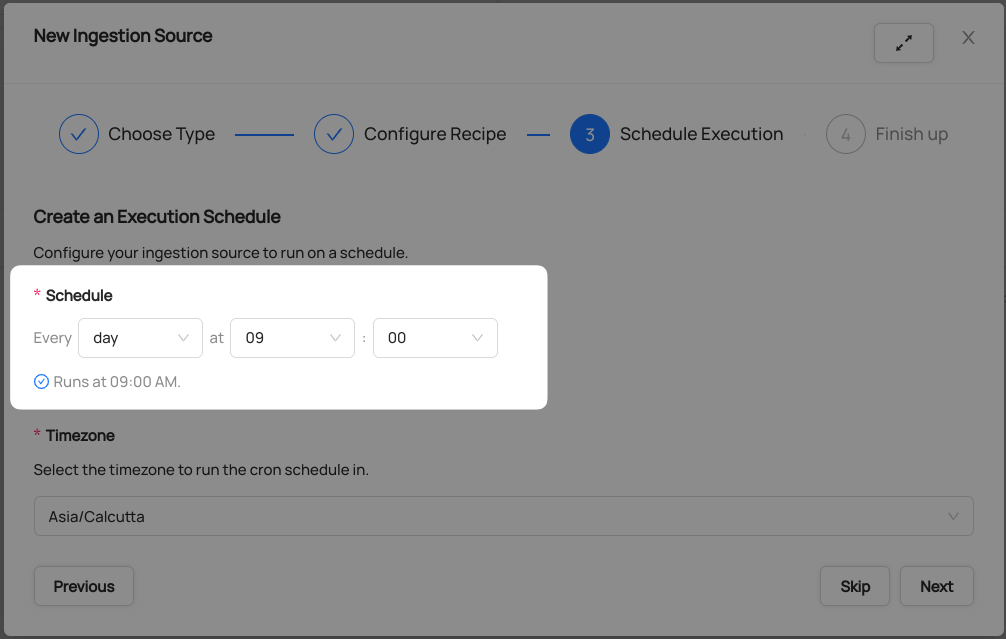
Ensure you've configured your correct timezone.
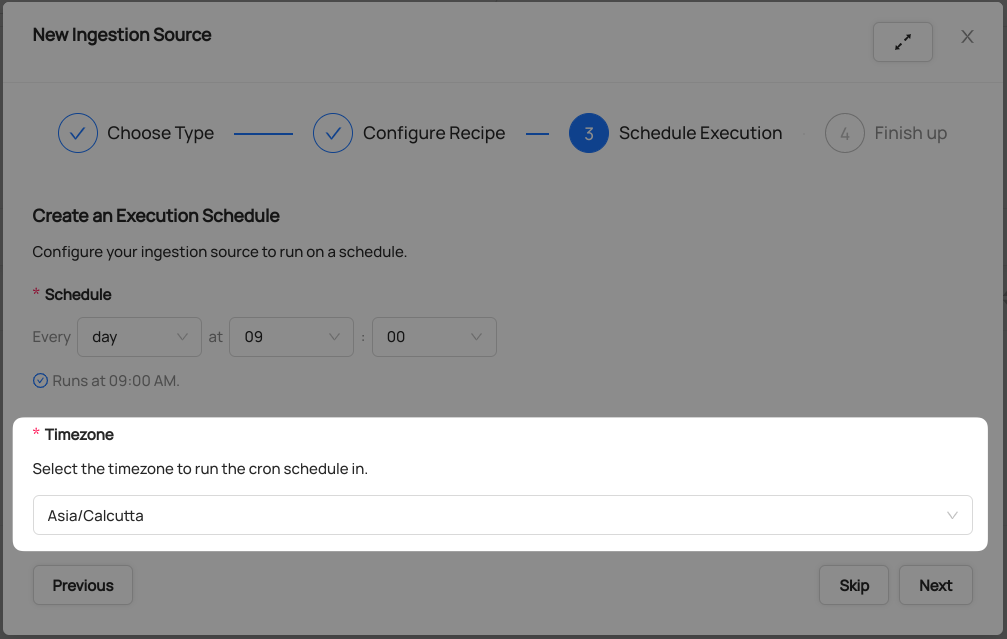
Finally, click **Next** when you are done.
### Finish Up
Name your ingestion source, then click **Save and Run**.
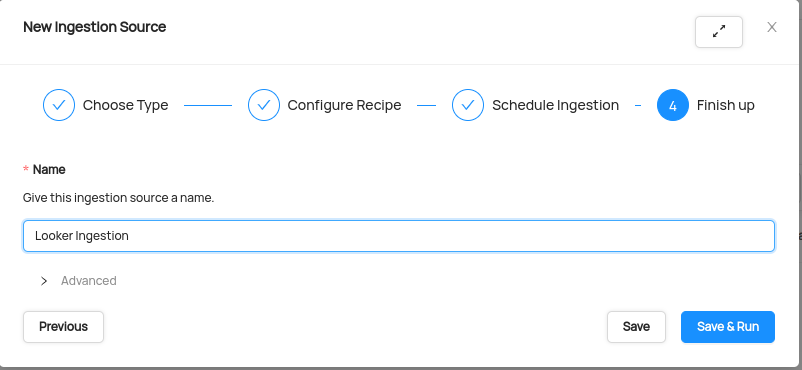
You will now find your new ingestion source running.

## Configure LookML Connector
Now that you have created a DataHub-specific API key and Deploy Key with the relevant access in [the prior step](setup.md), it's time to set up a connection via the DataHub UI.
### Configure Recipe
Navigate to the **Sources** tab and click **Create new source**.

Choose `LooML`.
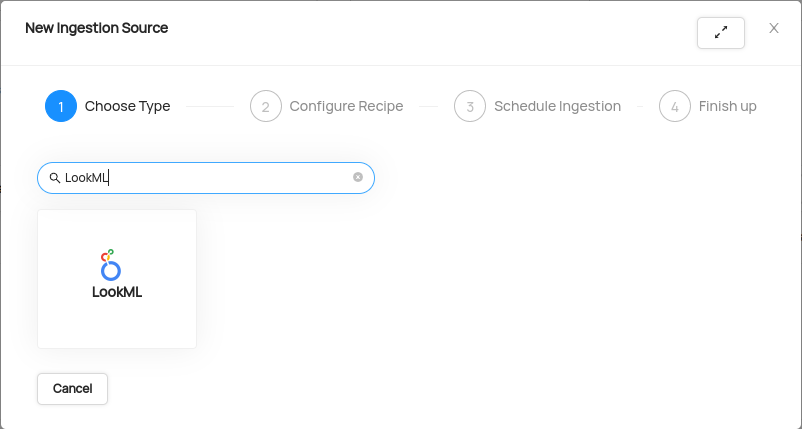
Enter the details into the Looker Recipe. You need to set a minimum 5 fields in the recipe for this quick ingestion guide:
- **GitHub Repository:** This is your GitHub repository where LookML models are stored. You can provide the full URL (example: https://gitlab.com/gitlab-org/gitlab) or organization/repo; in this case, the connector assume it is a GitHub repo
- **GitHub Deploy Key:** Copy the content of `looker_datahub_deploy_key` and paste into this filed.
- **Looker Base URL:** This is your looker instance URL. (i.e. https://abc.cloud.looker.com)
- **Looker Client ID:** Use the secret LOOKER_CLIENT_ID with the format `${LOOKER_CLIENT_ID}`.
- **Looker Client Secret:** Use the secret LOOKER_CLIENT_SECRET with the format `${LOOKER_CLIENT_SECRET}`.
Your recipe should look something like this:
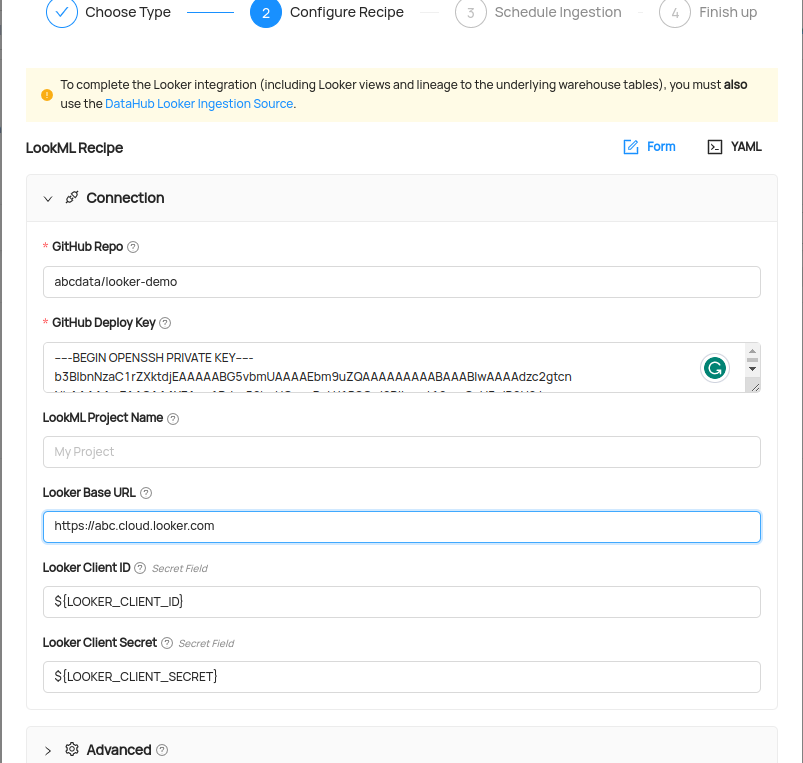
After completing the recipe, click **Next**.
### Schedule Execution
Now, it's time to schedule a recurring ingestion pipeline to extract metadata from your Looker instance regularly.
Decide how regularly you want this ingestion to run-- day, month, year, hour, minute, etc. Select from the dropdown.

Ensure you've configured your correct timezone.

Click **Next** when you are done.
### Finish Up
Name your ingestion source, then click **Save and Run**.
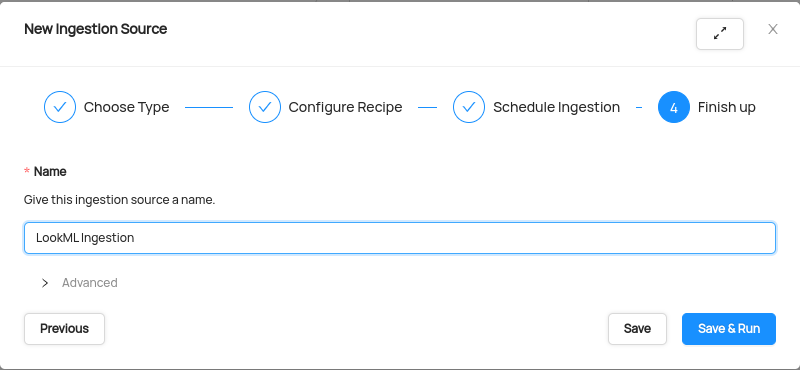
You will now find your new ingestion source running.

## Validate Ingestion Runs
View the latest status of ingestion runs on the Ingestion page.

Click the `+` sign to expand the complete list of historical runs and outcomes; click **Details** to see the results of a specific run.

From the Ingestion Run Details page, pick **View All** to see which entities were ingested.
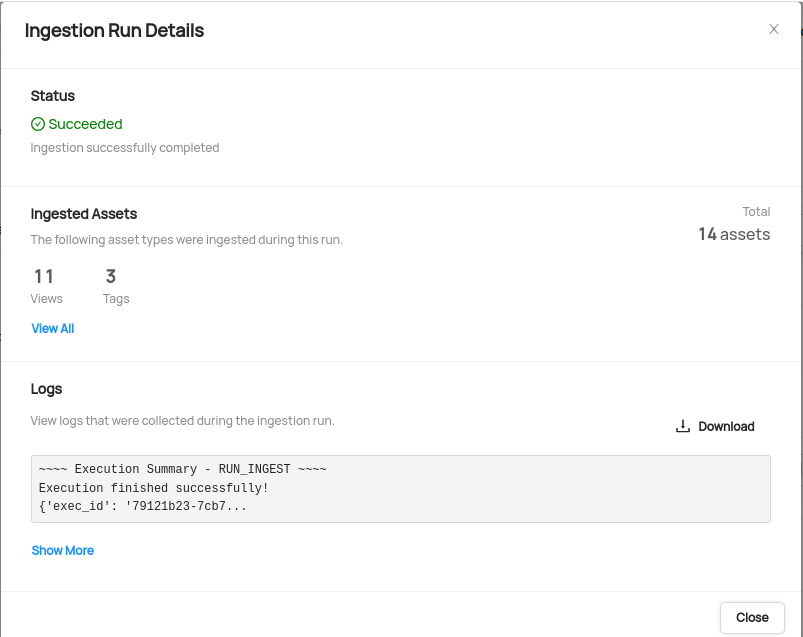
Pick an entity from the list to manually validate if it contains the detail you expected.
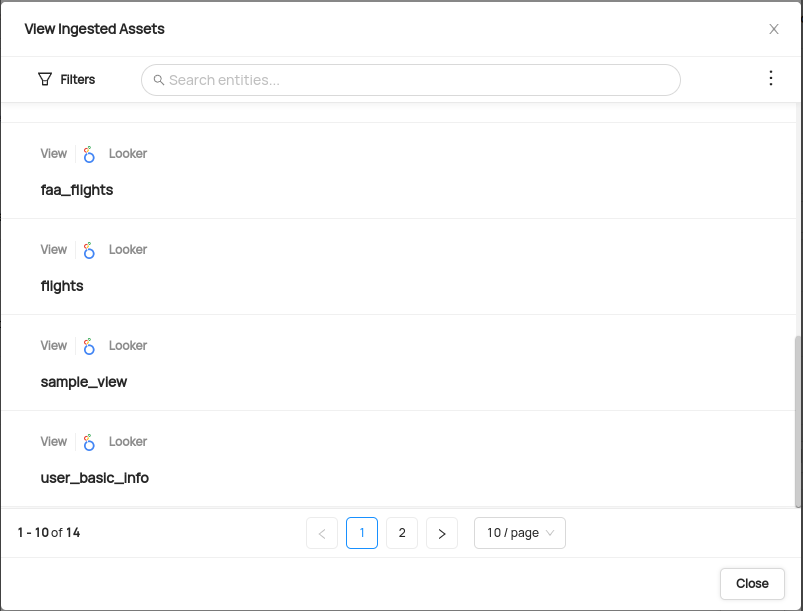
**Congratulations!** You've successfully set up Looker & LookML as an ingestion source for DataHub!






















